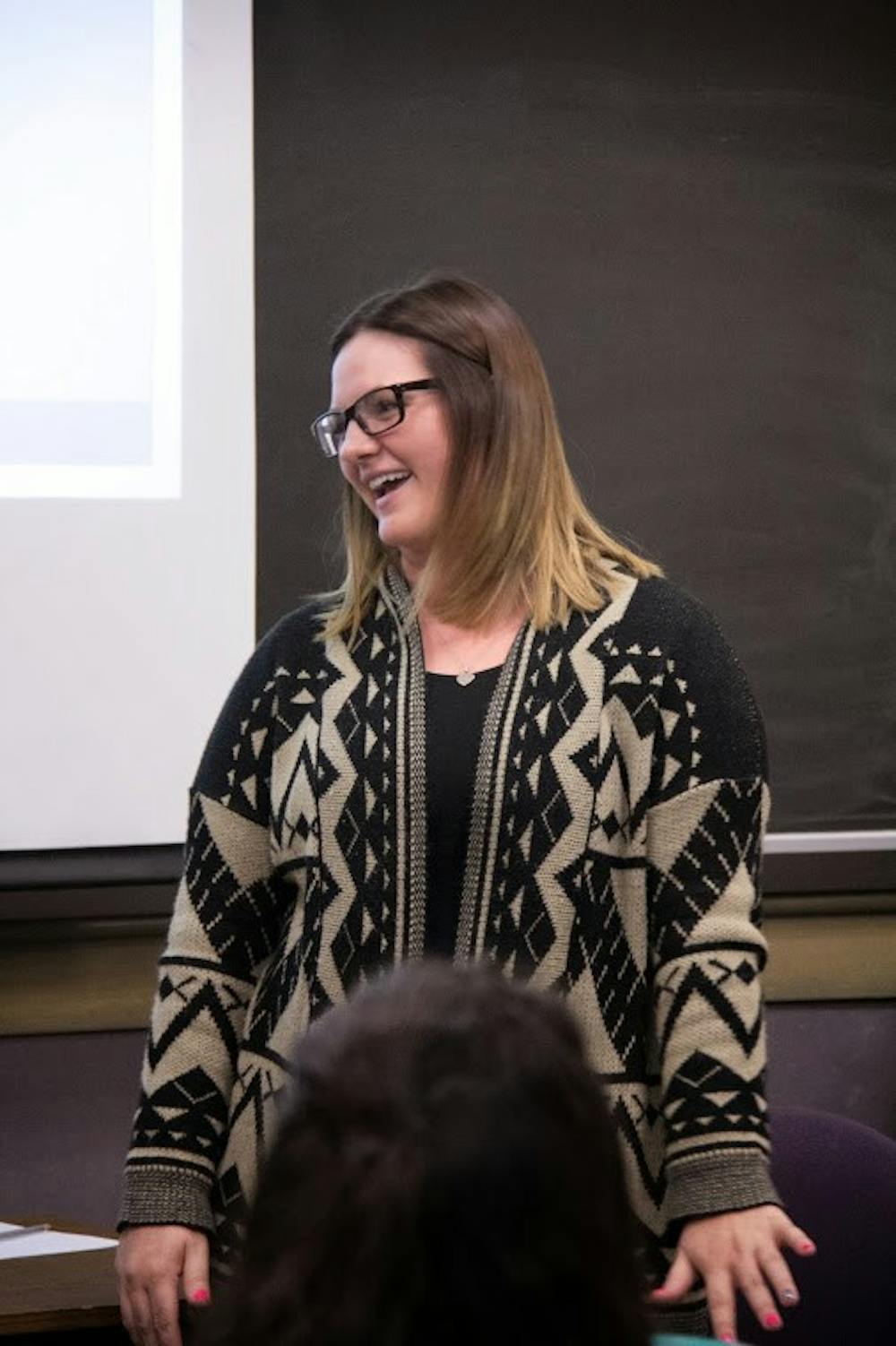Olivia Alsept-Ellis |
“The Black Individual”
Five University of Portland students – Kahlil Dumas, Gat Bol, Ilena Allen, Mikayla Posey and J'reyesha Brannon, sat at the front of the class, but their presentation wasn’t anything that can be explained in a textbook. The event was hosted by the the Black Student Union, entitled “The Black Individual” because it pressed this theme of focusing on the individual experience. These five students shared their personal life story, beginning with their families or early childhood.
“I’m often reminded that I am African-American,” junior Kahlil Dumas said. “In any class growing up, you see black, inner-city youth (portrayed) as lesser. As a child, you start to think, ‘Am I lesser?’”
Junior Mikayla Posey talked about the overt racism in the town she grew up in.
“There was actually a billboard outside of my hometown that said, ‘If you’re black, don’t let the sun set on your back,’” Posey said. “So basically, ‘You’re not welcome to stay in our town.’”
For some, it was friends that helped them and for others, it was friends that hurt them. No two stories were the same – a message that the Black Student Union tried to ingrain in the minds of the listeners. The Q-&-A session following the speakers allowed attendees to ask “How can I be a better ally?” “What can I do as a teacher in the classroom?” and many other thoughtful questions. The panel quickly turned into a dialogue, comedic and lighthearted at times, that left many in the audience wondering how they could become further involved with the club.
“Talking Back”
“The story being told here is that if you buy this car or cologne, you’ll be at the epicenter of this sexual earthquake,” Andi Zeisler, co-founder of Bitch Media, said while projecting a typical fashion magazine advertisement.
Bitch Media’s Zeisler was invited to campus by the Feminist Discussion Group and the Student Association of Social Workers for a Diversity Dialogue Panel themed “Talking Back.” Bitch Media is a quarterly magazine that, in Zeisler’s words, “provides and encourages and engages with thoughtful responses to pop culture.” Likewise, the theme of the panel concerned pushing back against these mainstream, often problematic representations.
Media is important, she said, as a room full of attendees stared at the images of scantily clad female bodies. Zeisler also neatly deconstructed other images perpetuated, such as body distortion, violence toward women or the sudden absence of women in roles of authority.
She provided these critical, feminist concepts with images, visuals and even graphs. While the focus of her discussion was talking back, the conversation eventually veered into creation or presentation of this push back. Harnessing the impact of media is the idea behind Bitch Media, after all, and Zeisler encouraged the room to do the same.
“Social media is potentially changing how activism looks,” Zeisler said. “It demystifies what activism is.”
Zeisler, while speaking about Bitch Media, was ultimately urging the attendees to pay attention to representation, to create or challenge something and to keep talking back.








